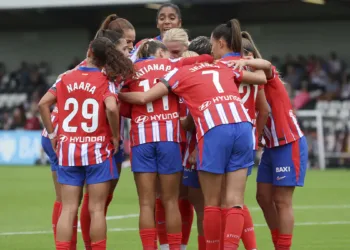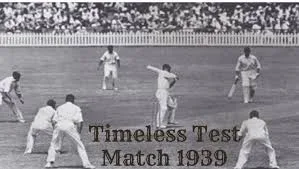Indian cricket is not just dominating on the field but is now firmly establishing its influence in the global governance of the sport. In a landmark development that signals India’s growing clout in international cricket administration.
Jay Shah, the dynamic Secretary of the Board of Control for Cricket in India (BCCI), is currently serving as the Chairman of the International Cricket Council (ICC). Adding to this momentum, Sanjog Gupta, a seasoned Indian sports executive, is poised to take over as the ICC’s Chief Executive Officer (CEO), replacing Geoff Allardice, who is stepping down.
This powerful duo—Jay Shah as ICC Chair and Sanjog Gupta as the likely new CEO—marks a new era of Indian leadership at the helm of world cricket. Let’s dive deeper into what this means for the sport globally and the exciting challenges ahead.
Table of Contents
The Rise of Indian Leadership in Global Cricket

India’s influence in cricket has grown exponentially over the past two decades. From being a cricketing powerhouse on the field to becoming a dominant force in the sport’s administration, India’s journey is remarkable.
The appointment of Jay Shah as ICC Chairman last year was a historic milestone, reflecting the trust and respect India commands in the cricketing world.
Jay Shah’s leadership style, marked by strategic vision and administrative efficiency, has already made waves in the BCCI. His elevation to ICC Chair is a natural progression, symbolizing India’s readiness to shape cricket’s future on a global scale. Now, with Sanjog Gupta likely to become the ICC CEO, India’s administrative footprint in cricket governance is set to deepen further.
Who is Sanjog Gupta? The Man Behind the New ICC CEO Role
Sanjog Gupta is no stranger to the cricketing world. Currently, he is the CEO of Sports & Live Experiences at Jiostar, the broadcast company that holds the ICC’s lucrative $3 billion media rights. His expertise lies in expanding cricket’s reach through television and digital platforms, making the sport more accessible and engaging for fans worldwide.
Gupta’s journey began with a degree in economics from Delhi University, followed by a career in journalism with The Tribune. He later worked with major Indian media houses such as TV Today Network, Star News India, and NDTV.
His media acumen and deep understanding of cricket broadcasting have been instrumental in popularizing the Indian Premier League (IPL) and other cricketing events globally.
His close working relationship with Jay Shah, especially through Jiostar’s IPL broadcasting, positions him as a natural fit to lead the ICC’s executive functions. If confirmed, Gupta will bring a fresh, media-savvy perspective to the ICC’s leadership.
The Significance of Indian Leadership at ICC
India’s rise in cricket administration is a reflection of its dominance on the field and its massive fan base. Jay Shah’s appointment as ICC Chairman last year was a historic moment, and Sanjog Gupta’s potential elevation to CEO further cements India’s influence.
This leadership duo is expected to steer the ICC through a transformative phase, balancing the interests of cricket’s traditional powerhouses with the commercial realities of the modern game. Their combined experience in administration, media, and cricket operations is expected to bring innovative strategies to the global cricket calendar.
Key Challenges Awaiting Sanjog Gupta as ICC CEO

Taking over as ICC CEO is no small feat. Sanjog Gupta will face several critical challenges that will shape the future of cricket worldwide:
1. Managing the IPL Boom:
The IPL is expanding rapidly, with the number of matches set to increase from 74 to 94 per season by 2028. Gupta will need to ensure this growth harmonizes with international cricket schedules, preserving the balance between franchise cricket and national team commitments.
The IPL’s commercial success has been unprecedented, but its expansion also raises concerns about player workload and the potential overshadowing of international fixtures. Gupta’s role will be to navigate these complexities, ensuring the IPL’s growth benefits the sport without compromising its integrity.
2. Revamping the World Test Championship (WTC):
The current WTC format is set to continue until 2027, but there is widespread consensus that it needs revamping to enhance competitiveness and fan engagement.
Test cricket, the oldest and most prestigious format, has faced challenges in attracting younger audiences. Gupta’s leadership will be crucial in redesigning the format to keep Test cricket vibrant and relevant. This could involve changes in scheduling, points systems, or even the introduction of new incentives to make the championship more exciting.
3. Promoting Women’s Cricket:
Women’s cricket is witnessing unprecedented growth, and the ICC aims to capitalize on this momentum. Gupta will likely spearhead initiatives to increase international fixtures, tournaments, and visibility for women’s cricket, helping it reach new audiences.
The rise of stars like Smriti Mandhana and the success of women’s leagues globally have created a fertile ground for expansion. Under Gupta’s guidance, the ICC could launch more global events, improve broadcasting deals, and invest in grassroots development to sustain this growth.
4. Cricket’s Return to the Olympics:
Cricket is set to make a comeback at the 2028 Los Angeles Olympics. Organizing this event smoothly and ensuring global participation will be a major task.
Currently, the qualification process remains undefined, and Gupta’s role will be pivotal in shaping this historic milestone. The Olympics offer a unique platform to showcase cricket to a broader audience, potentially unlocking new markets and fan bases. Successfully integrating cricket into the Olympic framework will require careful planning and collaboration with national boards.
5. Navigating India-Pakistan Cricket Relations:
Matches between India and Pakistan are among the most anticipated but also the most politically sensitive. With ongoing tensions, scheduling bilateral series remains a challenge.
Gupta will need diplomatic acumen to manage these complexities while preserving the spirit of the game. The rivalry between these two cricketing giants is legendary, but political issues have often disrupted sporting ties. Finding a way to facilitate cricketing exchanges without exacerbating tensions will be a delicate balancing act.
What This Means for Cricket Fans Worldwide
The appointment of Indian leaders at the ICC’s top positions signals a new chapter for cricket fans globally. With Jay Shah and Sanjog Gupta at the helm, cricket is poised to become more inclusive, commercially vibrant, and globally accessible.
Fans can expect a more balanced international calendar that respects the traditions of the game while embracing innovation. The growth of women’s cricket and the sport’s Olympic debut will open new avenues for engagement and excitement.
Moreover, the IPL’s expansion under Gupta’s watch will continue to offer thrilling cricketing action, blending star power with emerging talent. This means more matches, more entertainment, and more opportunities for players to shine on the world stage.
The Broader Impact on Indian Cricket and Beyond
India’s leadership in the ICC is not just about administrative power; it reflects the country’s deep passion for cricket and its commitment to growing the sport globally. This influence will likely lead to increased investment in cricket infrastructure, better governance standards, and more opportunities for emerging cricketing nations.
For Indian cricket, this is a moment of pride and responsibility. The decisions made by Shah and Gupta will impact millions of fans and players worldwide. Their success could inspire other sports in India to aim for similar global leadership roles.
Conclusion: India’s Cricketing Influence Reaches New Heights

The rise of Jay Shah as ICC Chairman and Sanjog Gupta as the likely new CEO is a testament to India’s growing stature in world cricket. Their leadership promises to bring fresh perspectives, strategic growth, and a renewed focus on the sport’s global development.
As cricket evolves in the 21st century, Indian administrators are set to play a defining role in shaping its future—on and off the field. For cricket lovers everywhere, this is an exciting time to witness the game’s transformation under visionary leadership.
Stay tuned as we follow this fascinating journey of Indian dominance in global cricket governance!
FAQ:-
When did Jay Shah become ICC chairman?
Jay Shah officially became the ICC Chairman on December 1, 2024. He was elected unopposed on August 28, 2024, and succeeded Greg Barclay.
Is Jay Shah taking charge of ICC?
Jay Shah is the current Chairman of the ICC, and commenced his tenure on 1 December 2024.








